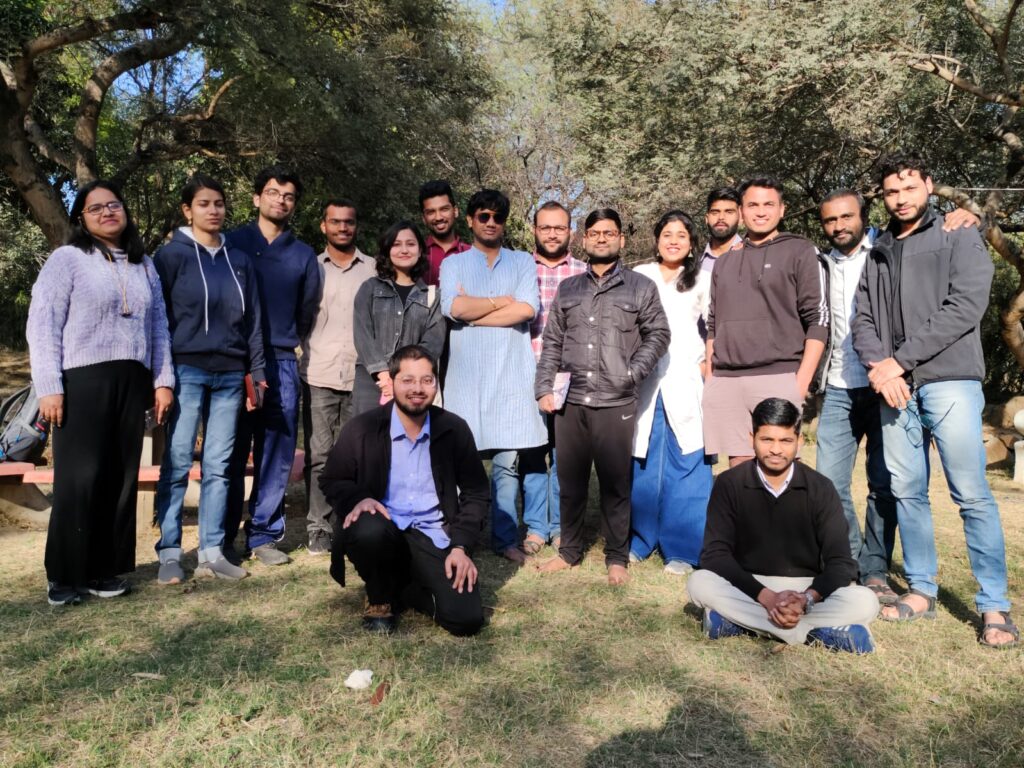
This blog provides discussion highlights for Sunday IR Cafe #44. Conducted on 12th February 2023, the discussion covered Political Agency, Victimhood, and Gender in Contexts of Armed Conflict: Moving beyond Dichotomies.
Core Arguments:
- The conventional view of gender-based violence portrays women as passive victims lacking agency. The recent wave of feminist scholarship, instead, reconceptualises victims of gender-based conflict as agential actors who actively engage with and respond to their experiences of sexual harm.
- Kreft and Schulz, however, criticize the continued persistence of the dichotomy between agency and victimhood, where individuals are seen as either a victim or an agent. The linear transformation narrative of women turning from victims to agents also falls into this dichotomous trap.
- The paper, in contrast, advances the argument that agency and victimhood can coexist simultaneously. Further, agency and victimhood can also be co-constitutive. They also make a case for treating agency in a relational sense, whereby people act in relation to others, to contextual structures, and to power differentials.
- Their qualitative fieldwork in Colombia and Uganda serves as an empirical basis for the claims. In Colombia, women’s formal civil society activism demonstrated the strategic use of victimhood to make claims for justice and the co-constitutive nature of agency and victimhood. In Uganda, an abducted girl’s life story demonstrates the simultaneous existence of victimhood and quotidian forms of resistance.
Discussion:
- The paper makes an important contribution in highlighting the counterintuitive way in which even the exercise of agency can lead to the onset of victimhood, as evident in the case of women activists being targeted violently by criminal organizations for their fight for justice.
- The temporal underpinning of the straight-line transformation from victimhood to agency in some feminist literature might be located in Biblical cosmology. While this paper does problematise this sort of understanding, an alternative, rich understanding of the co-constitutive nature of victimhood and agency rooted in the circular notion of temporality can be found in the Mahabharata. Women characters in the epic, including Draupadi, Kunti and Gandhari, played a pivotal role in the war while simultaneously being victims of vicissitudes and active shapers of the conflict. Moreover, the agency exercised by these women characters is relational in nature. Shikhandi was a victim in their earlier life, but an active agent bent on revenge in their later reincarnation. The cases of Shikhandi and Draupadi using their victimhood strategically in service of political aims or actions with political ramifications also bolster the paper’s argument about some women victims using their victimhood to make claims and gain justice.
- In the context of modern South Asia, the involvement of women fighters in insurgency movements in both Sri Lanka and Kashmir problematises the linear transformation narrative from victimhood to agency. The case of Kurdish women fighters can also demonstrate the simultaneous existence of agency and victimhood. Even though these women fighters may not necessarily face sexual violence themselves, their victimhood can be genuine in a relational sense as their close relatives and society often had to withstand the ISIS onslaught.
- One plausible reason for the lack of scholarly attention to the simultaneous presence of victimhood and the exercise of agency might have to do with the definitional scope. Defining agency in terms of active and formal political activity can preclude counting quotidian forms of resistance as a case of exercising agency.
- When it comes to the broader critical theory enterprise, the excessive focus on deconstruction and ‘digging-in’ kind of moral relativism is problematic as it does not leave us with any objective standard of justice or sense of reality that can serve as a basis for emancipation or progress. For those interested in praxis, the excessive focus on relativism and the nuance of uncovering layers and finding contradictions might be paralysing. In so far as the focus on relationality might lead to relativism, it would create the risk of epistemological anarchy and not help us solve the actual problem.
- However, defenders of critical theory and the relativist approach would argue that we should be cautious about accepting a commonsensical version of reality and normative standards. One man’s justice can indeed be another man’s injustice.
- In conclusion, the utility of this paper lies in nuancing our understanding of female involvement in conflict zones. It teaches us to take seriously the intertwined relationship between agency and victimhood as well as the quotidian exercise of agency, even in cases of bondage and oppression. The practical value of such critical feminist literature can be seen in the case of the DDR process in Sierra Leone which, as shown by Megan MacKenzie, overlooked women soldiers as agents in the conflict due to its conventional understanding of conflict zones. In such cases, feminist writings can serve as a corrective to the prevalent notion of women as passive victims and contribute to real-world policy implications in post-conflict reconstruction efforts.
